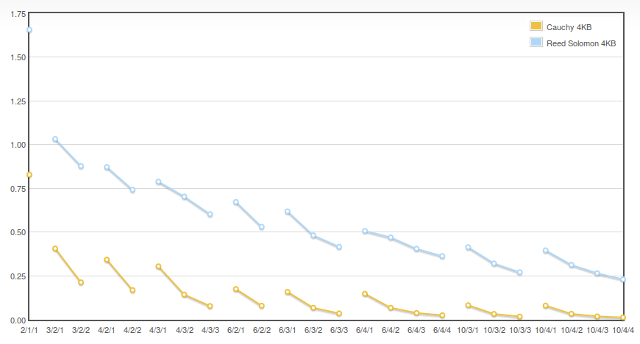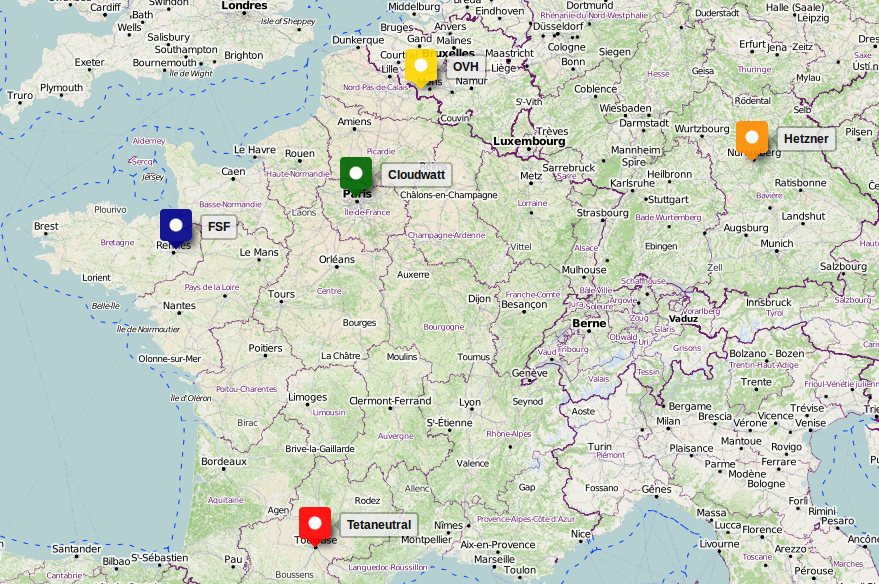On a Intel(R) Xeon(R) CPU E5-2630 0 @ 2.30GHz processor (and all SIMD capable Intel processors) the Reed Solomon Vandermonde technique of the jerasure plugin, which is the default in Ceph Firefly, performs better.
The chart is for decoding erasure coded objects. Y are in GB/s and the X are K/M/erasures. For instance 10/3/2 is K=10,M=3 and 2 erasures, meaning each object is sliced in K=10 equal chunks and M=3 parity chunks have been computed and the jerasure plugin is used to recover from the loss of two chunks (i.e. 2 erasures).
Continue reading “Ceph erasure code jerasure plugin benchmarks”




